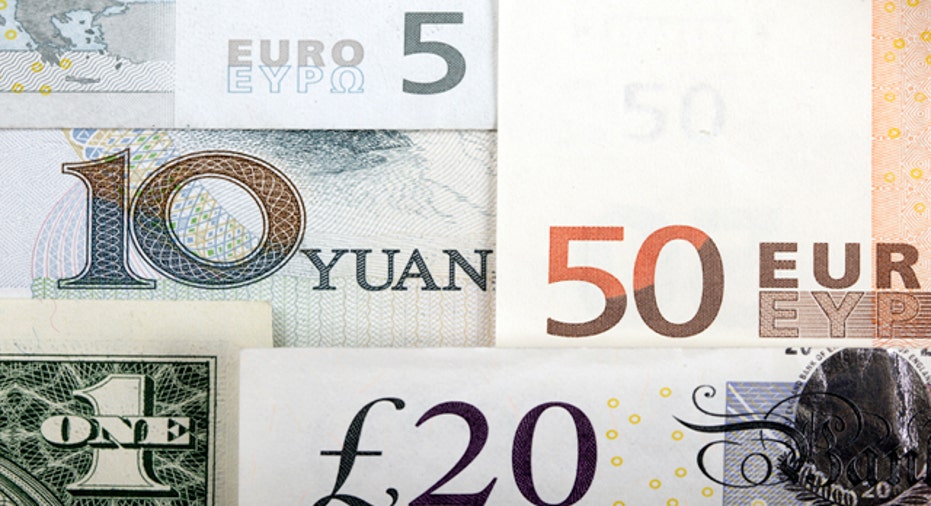How to Invest in Fast-Growing Frontier Markets

Powerhouse economies such as China are slowing lately. So where should you invest in equities? How about frontier economies such as Nigeria or Vietnam?
These and other countries, such as Sri Lanka, Bangladesh and even Iraq, are expected to sport rising gross domestic products, and some are even resource-rich. Citibank economist William Buiter forecast on BusinessInsider.com in 2011 that world GDP would grow by $300 trillion by 2050, largely propelled by these fast-growing frontier countries.
Global-market watchers also are noticing this shift. "Frontier markets are the next big thing," says Dawn Bennett, CEO of Bennett Group Financial Services LLC in Washington, D.C. "The BRICs are starting to slow down and become mature." By BRICs, Bennett is referring to Brazil, Russia, India and China.
Besides abundant natural resources, frontier countries have rising consumer wealth and little country debt -- contrary to developed nations. "So these countries will have more flexibility to capture the world's GDP," Bennett says.
Out of Africa
Take Africa, a favorite with many portfolio managers these days. From 2001 to 2010, six of the 10 fastest-growing economies in the world were in Africa, says Mark Mobius, who directs frontier-market research at mutual fund manager Franklin Templeton Investments. As of Dec. 25, the MSCI Frontier Market Africa Index, a widely used barometer, had risen an eye-popping 41.7% over the previous year.
Within Africa, Citibank predicted that Nigeria would be the fastest-growing country, with the sixth-largest world economy by 2050. Nigeria's GDP was ranked 45th globally in 2011, according to Vanguard.
"Nigeria is an oil-based economy," says Pradipta Chakrabortty, who manages the Harding Loevner Frontier Emerging Markets fund. "Also, the banking sector has undergone dramatic change. So Nigeria's banks are now among the top investment destinations."
Africa is well-known for its wealth of natural resources, says Mobius, whose fund has large holdings in mid-continent African countries such as Nigeria and Kenya. Yet these investments aren't without their challenges, he says. Inflation, limited stock liquidity and political stability in some countries are concerns.
Chakrabortty says that's why investors shouldn't invest on their own. "Frontier markets are highly volatile," he says. And they're also expensive to invest in because trading costs in those countries are higher.
Asia makes strides
Still, Africa isn't the only growth spot. Asian countries such as Bangladesh and Vietnam also have strong potential, says Chakrabortty. Those two countries are profiting from the outsourcing of manufacturing labor as wages rise in China.
"They're better positioned now than five or 10 years ago," he says.
Citibank estimates that Vietnam's GDP will reach $5 trillion by 2050, according to BusinessInsider.com. "Its stocks are also cheaper than those in other emerging countries," says Bennett.
The Middle East, though more volatile, has its share of high-growth economies in Pakistan and Iraq, but bring a strong stomach.
"We don't invest in countries with political instability like Pakistan," Bennett says. However, Citibank forecasts that Iraq's GDP, with its abundant oil and gas resources, will grow to $2.2 trillion by 2050, according to BusinessInsider.com.
Best Ways to Invest
To be sure, investing in frontier markets isn't for the queasy. "Every three to four years, markets tank," says Karim Rahemtulla, who wrote "Where in the World Should I Invest? An Insider's Guide to Making Money Around the Globe."
For example, the MSCI Frontier Markets Index lost about two-thirds of its value during the global collapse of 2008 and 2009, according to The New York Times.
These frontier markets sound sexy, but you have to be careful. "Don't invest more than 10% of your portfolio assets in them," Rahemtulla says.
For investors willing to take the plunge, frontier market exchange-traded funds, or ETFs, give you entry into the global marketplace, Rahemtulla says. "They don't have loads and trade with a good group of stocks," he says. "Load" refers to a sales fee that some funds charge.
Closed-end funds, which are mutual funds that issue a set number of shares, are another way to play these markets, Bennett says.
Mobius says frontier market investments offer portfolio diversification, since they may go up when developed markets go down. Also, frontier markets aren't well-researched, so analysts can discover stock bargains that evade many investors. So mutual funds may have an information advantage, he says.
Best of all, Mobius says frontier markets have compelling long-term growth potential, especially when compared to many developed nations.
Even so, Morningstar senior fund analyst Bill Rocco would avoid investing in frontier mutual funds because they're new, small and very expensive. Instead, he recommends going with an international fund, since those funds usually have frontier market exposure. "Most foreign large-cap funds include frontier stocks," he says.
"In 10 years, who knows what will happen with frontier economies, anyway," Rocco says. "I don't think there's any benefit to being early."
Copyright 2013, Bankrate Inc.



















